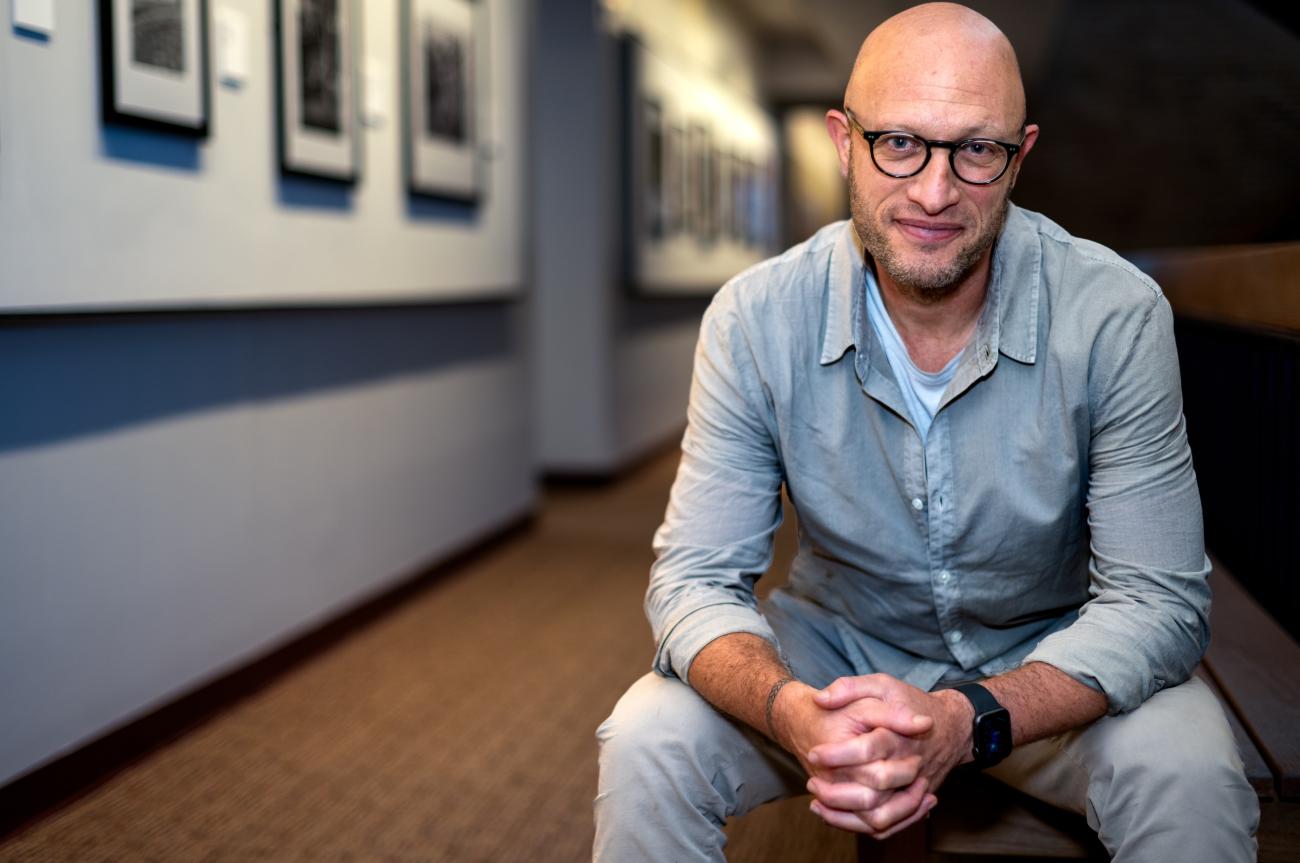The Wheel of Temporality: German Jewish Thinkers on Time
Historian Nitzan Lebovic is examining how the concept of time itself has evolved
Intellectual history explores the development of ideas and concepts over time. Historian Nitzan Lebovic is examining how the concept of time itself has evolved by studying the thoughts and writings of influential 20th-century German Jewish thinkers.
Lebovic, professor of history, explains that there are layers to thinking about time. At its most fundamental, “we are creatures of time, and what we understand, especially as historians, is that everything we do is connected to time,” he says.
Identity is always transforming and changing. “Identity is never static,” he says. “Identity is formed and re-formed during our lifetime.” Our engagement with the world—through society, language, and culture, for example—plays a role in shaping our sense of self, he further explains.
At the core of his research, Lebovic is exploring Jewish time, and more specifically, German Jewish time. His latest monograph Homo Temporalis focuses on four key German Jewish thinkers—Martin Buber, Walter Benjamin, Hannah Arendt, and Paul Celan—and analyzes how their ideas about time have shaped various fields, such as religion, politics, art, and culture.
“German Jewish thinkers think about these things because they are a minority,” Lebovic argues. They're a minority living in a German-speaking society, and their status, identity, and understanding of the world reflect their sense of discrimination but also hope for change.
Lebovic traces how the notion of time evolves chronologically from Buber to Celan. Martin Buber, the father of modern-day religious studies, considers time as it relates to reforming Jewish life. For critical theorist Walter Benjamin, time is linked to critical thought and how it shapes life. Hannah Arendt, a political thinker, discusses time as the core of equality and the sanctity of life. Paul Celan’s thoughts on time are expressed in his poetry, reflecting the language of life, especially in the context of post-Holocaust existence.
Unlike the other scholarly work on Jewish time, Lebovic emphasizes that “these Jewish thinkers think about time the way they do because they are Jewish,” but not to reaffirm their Jewishness. On the contrary, “they use it as a critical tool.”
“It may be a sign of their openness that all four were highly skeptical about Zionist ideology and imagined either a bi-national state, as Buber did, a confederate structure, as Arendt did, or simply a non-nationalist Jewish identity, as Benjamin and Celan did.”
For each thinker, understanding life means understanding, or accepting equality, Lebovic says. His interest in studying temporality stems from his ethics: “I always believed in equality as a basic value.”
“Time is the most important element of life and it's what defines who we are as human beings.” In the end, time is the greatest equalizer.

